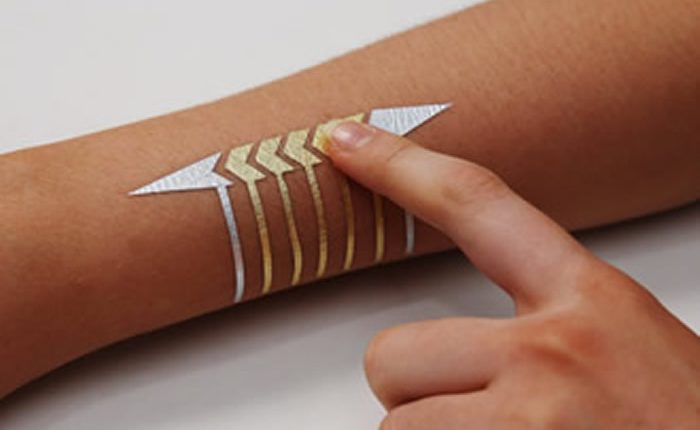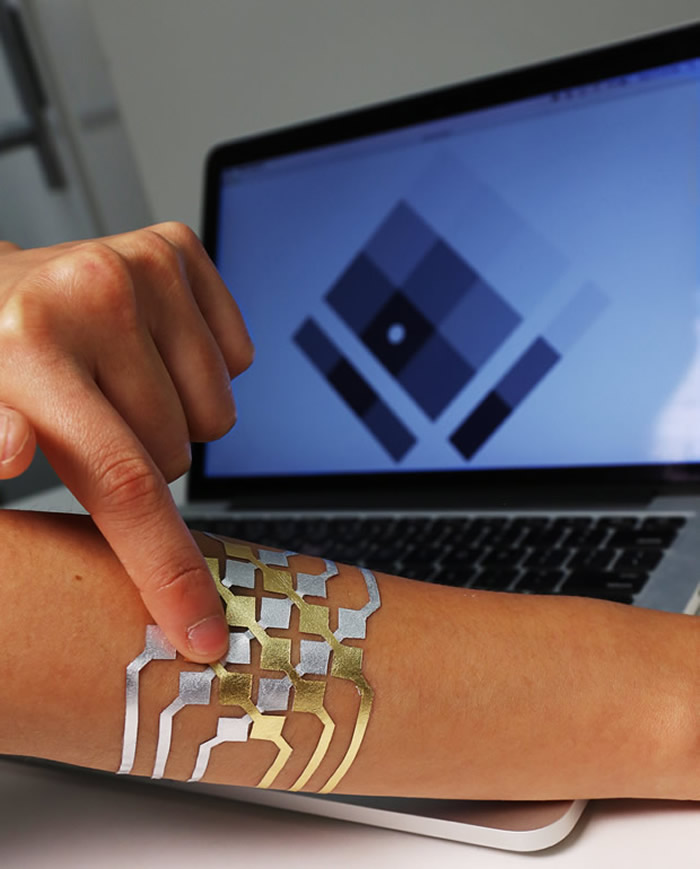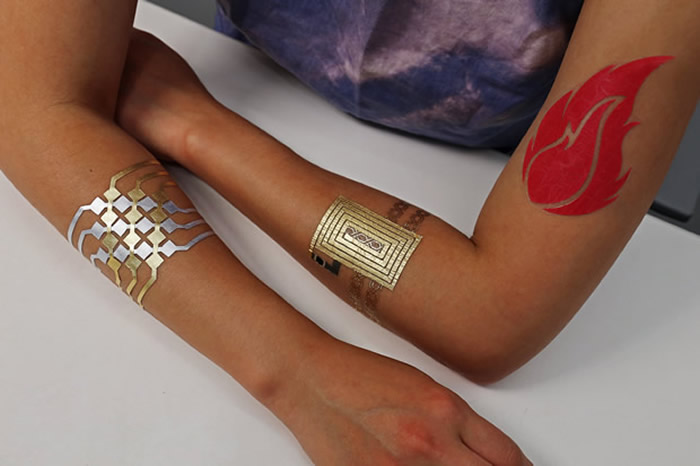“How would you like to pay?”: With my temporary tattoo please…
On-skin jewelry that can control your smartphone? Tattoos which contain your music? Pay for your coffee with your elbow? …Sound a touch far fetched? A group of students from MIT Media Lab and Microsoft Research have developed prototypes of on-skin user interfaces, which resemble jewelry.
Made from gold metal leaf, a material used to decorate cakes, make vodka sparkle, and decorate picture frames, is used for the temporary tattoo material and is cheap, skin-friendly and robust.
There are three classes of on-skin user interfaces; input, output and communication. All three of these interfaces have DuoSkin prototypes. The input interface allows the user to use the temporary tattoo as a button, slider or 2D trackpad. The output interface tattoo changes color triggered by body temperature, activated by resistive heating elements under the thermochromic layer. The communication prototype allows data exchange using NFC for wireless exchanges, which could be used, for example, for NFC payments.
DuoSkin is created in three steps:
- sketching skin circuitry with graphic design software
- fabrication; creating stencils of the circuity, applying gold leaf as the conductive materials, mounting the electronics
- applying the device to the user’s skin through water-transfer
“I think there is no fashion statement greater than being able to change how your skin looks,” Cindy Hsin-Liu Kao, a PHD Student at the Media Lab explained in the MIT video. “These tattoos enable anyone to create interfaces directly on their skin.”
This technology presents various application possibilities, whilst integrating an aesthetic design, “We draw a lot from the usability and also the aesthetics of metallic temporary tattoos into the design of our on-skin interfaces,” Kao added.
“In the future when you walk into a tattoo parlor, you would come out with a tattoo like this. They would not only be very sophisticated technically, but they would become an extension of yourself.”
More information: MIT Media Lab




Comments are closed, but trackbacks and pingbacks are open.